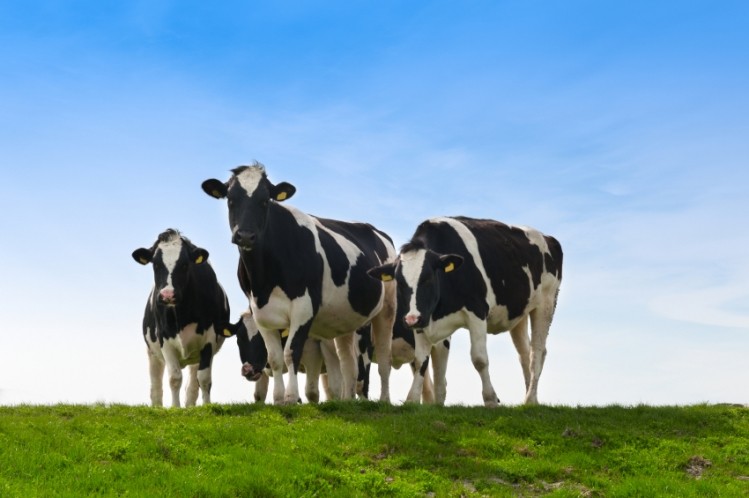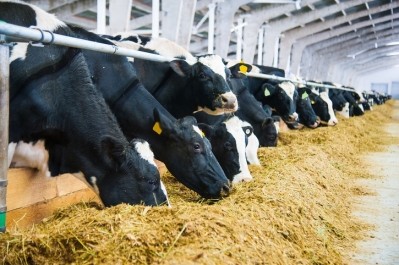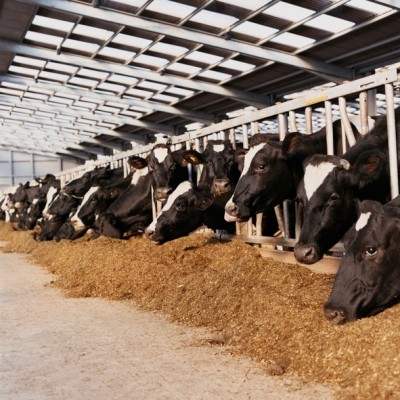International Beef Exchange: Lallemand looks at how yeast and microbial interaction benefits productivity and welfare

The link between welfare and digestive comfort, and their combined influence on cattle productivity, and quality of end-products were some of the themes of the Clermont Ferrand event, organized by Lallemand Animal Nutrition and the French National Institute for Agricultural Research (INRA).
Speakers evaluated feeding strategies taking into account various herd management practices, housing, the quality of feed and forage, and feed supplements.
We caught up with Dr Frédérique Chaucheyras-Durand, head of the rumen microbiology research team of Lallemand Animal Nutrition, who spoke at the event.
She is exploring how effective gut microbial management can optimize digestive performance and enhance cattle welfare.
“Dairy and beef cattle producers face many challenges, in that they need to boost output to meet increased global demand for meat and milk products.
But, in doing so, they need to consider multiple factors from hikes in feed prices to a reduction of arable land to water supply limitations to climate change to consumer demands on animal welfare and food safety.
One way to go is to improve animal digestion efficiency: transforming more energy from feed into meat or milk is critical, and this can only work with an efficient rumen,” she said.
Action and effects of live microorganisms
Her team focuses on modes of action and effects of live microorganisms on rumen microbiota and rumen function to improve animal health and performance.
They use both in vitro and in vivo tools to support their research efforts as well as classical anaerobic microbiology techniques and molecular ecology methods such as DNA fingerprinting.
“One of the paths we follow to achieve optimal digestion is the enhancement of the digestive capacity of microbial communities in the animal’s gastrointestinal tract, as these communities are responsible for the breakdown of feed, but also participate in maintaining health and even welfare.
We are also trying to improve the quality of preserved forage both in terms of nutritive quality to reduce loss of nutrients and sanitary quality to control undesirable microorganisms,” she explained.
Yeast strain selection said to be critical for rumen efficiency
Focusing on yeasts, the researchers have found a lack of consistency in terms of the impact of different strains on the rumen, with huge diversity in the types of interactions that occur between yeasts and rumen microbial populations.
“So the screening of efficient yeast strains is critical, and it is a very long and complicated process,” added Chaucheyras.
In terms of the challenges involved in using yeast additives in ruminant feed, she said it is crucial to keep the yeast cells alive and active from the yeast plant up to the targeted digestive compartment - the rumen. “Manufacturing constraints depend on the type of feed used."
Welfare and performance
Lallemand Animal Nutrition, said the microbiology expert, has selected one particular yeast strain, Saccharomyces cerevisiae CNCM I-1077, based on different criteria of efficacy in ruminants.
The strain, she explained, has the ability to promote the growth and activity of certain endogenous fiber degrading microbial populations in the rumen. It is also able to control lactate producing population, which explains its benefits on rumen pH, she added.
The company’s Levucell SC20 is a highly concentrated form of S. cerevisiae I-1077 for meal feeding, and its Levucell SC Titan is designed for pelleted feed.
Chaucheyras said these additives allow for better rumen microbial colonization, which prepares the young animal for weaning in the most optimal conditions, and aids control of rumen pH, to prevent ruminal acidosis and to improve fiber digestion.
Trials have shown they also enable benefits in terms of performance through improved feed efficiency with better conversion of energy from feed into milk or meat through the rumen. They also bring welfare and animal behavior gains, she said, in that there is better digestive comfort for the animal.
Feeding management
Trevor de Vries, associate professor at Guelph University in Canada, who specializes in dairy cattle nutrition, behavior and welfare, spoke about feeding management at the International Beef Exchange.
He notes how feeding behavior can affect how and when nutrients make it to the rumen, and can greatly influence rumen functionality.
A feeding strategy whereby animals consume "small meals at greater frequency leads to a steady input of nutrients into the rumen of the animal which is much more conducive to an efficient fermentation process, leading to better fiber digestion and improved productivity.
In addition to the actual feed itself we can modulate that feeding behavior through changes in feeding management, ensuring the animals have feed available to them at all times, and by providing an environment with sufficient space available in the feeding area so the animals don’t have to compete to gain access to the feed, and can consume it in a manner that is good for them," said de Vries.














